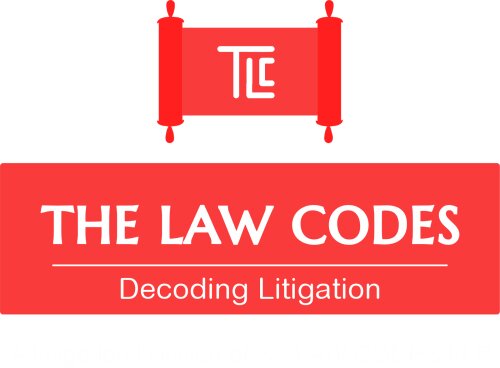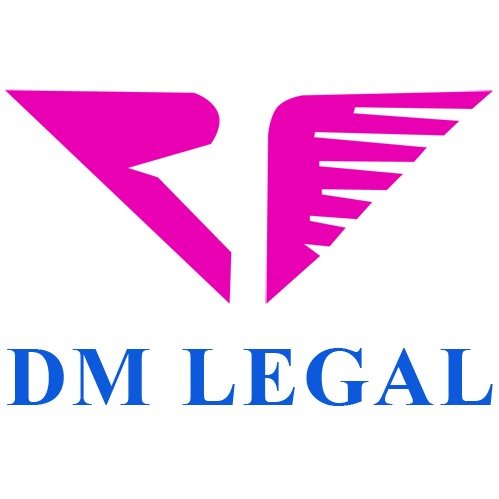Best Education Law Lawyers in India
Share your needs with us, get contacted by law firms.
Free. Takes 2 min.
Or refine your search by selecting a city:
List of the best lawyers in India
About Education Law in India
Education Law in India encompasses the range of legal issues that affect schools, teachers, students, and educational institutions. These laws serve to regulate the quality of education and ensure that educational services are delivered equitably across different sections of the population. Education is governed by a plethora of laws that include constitutional provisions, statutes, regulations, and specific legislation such as the Right of Children to Free and Compulsory Education Act, 2009 (RTE Act), among others. These laws aim to uphold the standards of educational institutions, protect student rights, and guide the operations and administration of educational bodies at all levels.
Why You May Need a Lawyer
There are several instances where individuals or institutions might require legal assistance in the realm of Education Law in India:
- Disputes related to admissions, fees, or scholarships.
- Issues concerning the compliance of schools or colleges with statutory regulations.
- Matters involving the rights and responsibilities of students and educators.
- Litigation involving disciplinary actions or breaches of conduct within a school or college environment.
- Legal guidance for setting up educational institutions, ensuring adherence to national educational standards.
- Addressing discrimination or harassment cases within educational settings.
Local Laws Overview
Education Law in India is rooted in both centralized and localized legislative frameworks, which include:
- Right to Education (RTE) Act, 2009: Mandates free and compulsory education for children between the ages of 6 and 14 years.
- Constitutional Provisions: Articles such as Article 21A, Article 45, and Article 51A (k) underscore the right to education and the state’s responsibility to provide it.
- National Education Policy (NEP): Provides a comprehensive framework to guide the development of the education sector, emphasizing equity and inclusion.
- State-Specific Regulations: Various states have enacted regulations specific to their educational needs and infrastructure.
- University Grants Commission (UGC) Regulations: Govern the standards for higher education institutions across India.
Frequently Asked Questions
What is the RTE Act and whom does it benefit?
The Right of Children to Free and Compulsory Education Act, 2009, ensures free elementary education to children aged 6 to 14 across India. It mandates the provision of necessary standards in schools and promotes inclusive education for all children, regardless of their socio-economic status.
Can a school deny admission based on caste or religion?
No, discrimination based on caste, religion, or other prohibited grounds is unlawful in India. Educational institutions must adhere to a policy of non-discrimination in admissions.
What rights do students have in Indian schools?
Students have various rights, including the right to education, protection from any form of harassment or discrimination, and a conducive learning environment. They are also entitled to participate in cultural and academic activities without bias.
How can a school be held accountable for bullying or harassment?
Schools are obligated to prevent bullying and harassment through effective policies and measures. If a school fails in this duty, legal action can be initiated against the institution or involved parties to mandate changes and ensure accountability.
What regulations govern the setting up of private educational institutions in India?
Setting up private educational institutions involves complying with various laws and regulations, including the necessary affiliation and recognition requirements by state authorities and the UGC, if applicable.
Are homeschooling and alternative education recognized under Indian law?
Homeschooling is not extensively regulated by Indian law. However, recognition is growing, and several parents choose this route. The NEP also recognizes diverse forms of education, promoting flexible learning paths.
What role does the UGC play in higher education?
The University Grants Commission (UGC) establishes standards for higher education in India, provides funds for development, and ensures quality through periodic assessments and accreditations.
Can a student pursue legal action against wrongful expulsion?
Yes, students who believe they have been wrongfully expelled can pursue legal action by filing a petition in an appropriate educational tribunal or court to challenge the decision.
What is the role of parents in monitoring compliance with education laws?
Parents play a crucial role in ensuring that educational institutions comply with statutory obligations. They can participate in school management committees to oversee policy implementation and lodge complaints if they detect violations.
How can one start the legal process for an educational dispute?
Starting the legal process typically involves consulting with an education lawyer to understand options, filing a grievance with the institution, or proceeding with legal action in a court or tribunal specializing in education disputes.
Additional Resources
If you're seeking more information or assistance regarding Education Law in India, the following resources may be useful:
- Ministry of Education, Government of India: Provides updates and guidelines on various educational policies.
- National Council of Educational Research and Training (NCERT): Offers educational resources and guidance.
- State Education Departments: Offer information on state-specific educational laws and resources.
- National Commission for Protection of Child Rights (NCPCR): Acts to protect children’s rights, including in educational settings.
Next Steps
If you are facing issues or need guidance on Education Law in India, consider the following steps:
- Document all relevant facts and interactions related to the issue.
- Consult with an education lawyer to understand your rights and responsibilities.
- Check if the issue can be resolved through institution-specific grievance mechanisms.
- If necessary, prepare to initiate formal legal proceedings by filing a case in the relevant court or tribunal with the help of your legal counsel.
- Stay informed of any updates on educational laws that may affect your case or situation.
Lawzana helps you find the best lawyers and law firms in India through a curated and pre-screened list of qualified legal professionals. Our platform offers rankings and detailed profiles of attorneys and law firms, allowing you to compare based on practice areas, including Education Law, experience, and client feedback.
Each profile includes a description of the firm's areas of practice, client reviews, team members and partners, year of establishment, spoken languages, office locations, contact information, social media presence, and any published articles or resources. Most firms on our platform speak English and are experienced in both local and international legal matters.
Get a quote from top-rated law firms in India — quickly, securely, and without unnecessary hassle.
Disclaimer:
The information provided on this page is for general informational purposes only and does not constitute legal advice. While we strive to ensure the accuracy and relevance of the content, legal information may change over time, and interpretations of the law can vary. You should always consult with a qualified legal professional for advice specific to your situation.
We disclaim all liability for actions taken or not taken based on the content of this page. If you believe any information is incorrect or outdated, please contact us, and we will review and update it where appropriate.
Browse education law law firms by city in India
Refine your search by selecting a city.















